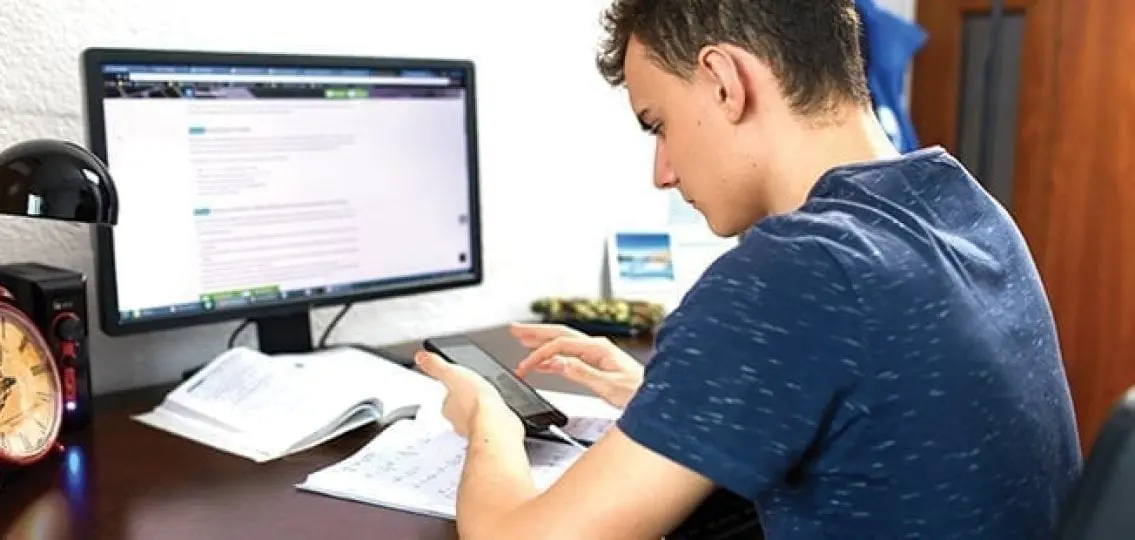“But I’m using my phone to do my homework!”
If you’re the parent of a middle school or high school student, you’ve likely heard these words when you ask them to put away the phone and get their homework done.

As technology invades every corner of our kids’ lives, both at home and at school, it has become increasingly difficult to help them develop a healthy relationship with it and use it for good instead of Instagram. (Okay, so we all like a little Instagram now and then.)
The fact is, your kids probably do need technology to do their homework—at least some of the time.
The trick is to help teens recognize when technology is helping them study, and when it’s just derailing their productivity.
4 Ways to Help Teens Learn to Use Technology Wisely:
1. Choose educational apps carefully.
Consider educational apps. The educational technology sector is booming with apps designed to help kids master new concepts. Looking for an app to help with algebra? There are hundreds. But that doesn’t mean they are all helpful to your child.
“There’s a lot of garbage out there, especially with people out to make a quick buck,” says Emily Levitt, Vice President of Education at Sylvan Learning. Sylvan’s teachers are trained to help engage students using interactive technology.
“For example, your child might have a project on photosynthesis,” Levitt says. “An app might hit on the buzzword you’re looking for, but not the content they need. Having reviewed hundreds of pieces of educational technology, our tutors can provide recommendations to parents that will actually support their child’s learning.”
Don’t exclusively use apps that just require students to memorize information and take quizzes, educators suggest. Look for apps that encourage students to analyze information, make judgments, or create something new with their knowledge.
[adrotate banner=”39″]
2. Put the phone away when doing homework.
When working on a project that involves internet research, students naturally gravitate toward their smartphones. However, if you have a student who struggles to stay on task, Levitt recommends putting the phone in another room during homework time.
“The phone is always beckoning with texting and social media,” says Levitt. “If possible, have the student use another computer or tablet for homework. Ideally, one that is not connected to the student’s personal apps.”
What about those dreaded group projects? Rather than texting back and forth, encourage students to use a collaborative platform like Google Docs. “This allows every student to contribute and see others’ changes in real time, and it can also allow a teacher to see the history of everyone’s participation,” says Levitt.
3. Create as much as you consume.
Parents should consider that what children are doing online is just as important as how much time they are spending doing it, says Dr. Troy Hicks, an associate professor at Central Michigan University who focuses on education and technology.
“Any ‘balance’—either in school or at home—would demand that students are creating at least as much of their own original content for academic and creative purposes as they are consuming what is available to them,” advises Hicks.
“Let’s put that in concrete terms. For every hour viewing YouTube or playing a video game, a student should spend another hour creating their own video or learning to code.”
4. Keep informed about what’s out there.

“Ask your children thoughtful questions about their personal and academic uses of technology,” recommends Hicks. “Rather than lecturing them about the negative effects of technology, engage in a dialogue with your children about their media use.” The goal is that they—and not parents—“will be much better able to make the critical decisions we would expect of them as they become responsible adults.”

Technology is here to stay, for work and for play. The goal is to help our kids be aware of its role in their teens’ lives so that it serves them well, rather than the other way around.



